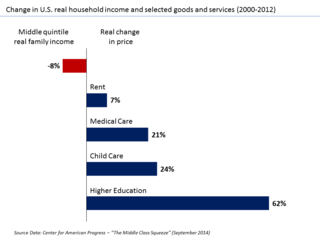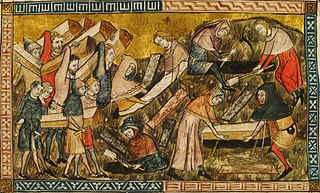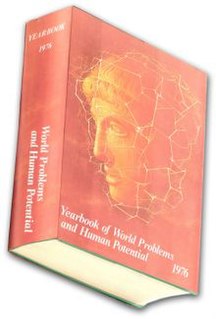 W
WBank Transfer Day was a consumer activism initiative calling for a voluntary switch from commercial banks to not-for-profit credit unions by November 5, 2011. As of October 15, 2011, a Facebook page devoted to the effort had drawn more than 54,900 "likes". Debit card fees of $5 a month from the Bank of America are among steps leading to the Bank Transfer Day protest with a November 5 deadline. Occupy Wall Street participants support the effort even though the events are not related. Among the detractors were Occupy Los Angeles participants: Sigurd Olin Christian, creator of the Bank Transfer Day event, stated that "he was accosted by Occupy Los Angeles organizers and has even received threatening phone calls" because of his pro-credit union rather than anti-bank approach.
 W
WA steady-state economy is an economy made up of a constant stock of physical wealth (capital) and a constant population size. In effect, such an economy does not grow in the course of time. The term usually refers to the national economy of a particular country, but it is also applicable to the economic system of a city, a region, or the entire world. Early in the history of economic thought, classical economist Adam Smith of the 18th century developed the concept of a stationary state of an economy: Smith believed that any national economy in the world would sooner or later settle in a final state of stationarity.
 W
WA steady-state economy is an economy made up of a constant stock of physical wealth (capital) and a constant population size. In effect, such an economy does not grow in the course of time. The term usually refers to the national economy of a particular country, but it is also applicable to the economic system of a city, a region, or the entire world. Early in the history of economic thought, classical economist Adam Smith of the 18th century developed the concept of a stationary state of an economy: Smith believed that any national economy in the world would sooner or later settle in a final state of stationarity.
 W
WDe-industrialization is a process of social and economic change caused by the removal or reduction of industrial capacity or activity in a country or region, especially of heavy industry or manufacturing industry.
 W
WEconomic mobility is the ability of an individual, family or some other group to improve their economic status—usually measured in income. Economic mobility is often measured by movement between income quintiles. Economic mobility may be considered a type of social mobility, which is often measured in change in income.
 W
WThe following is a list of industrial complexes.
 W
WMarket fundamentalism, also known as free-market fundamentalism, is a term applied to a strong belief in the ability of unregulated laissez-faire or free-market capitalist policies to solve most economic and social problems. It is often used as pejorative by critics of said beliefs.
 W
WThe middle-class squeeze refers to negative trends in the standard of living and other conditions of the middle class of the population. Increases in wages fail to keep up with inflation for middle-income earners, leading to a relative decline in real wages, while at the same time, the phenomenon fails to have a similar effect on the top wage earners. People belonging to the middle class find that inflation in consumer goods and the housing market prevent them from maintaining a middle-class lifestyle, undermining aspirations of upward mobility. In the United States, middle-class income is declining while many goods and services are increasing in price, such as education, housing, child care, and healthcare.
 W
WOlim L'Berlin was the name of a Facebook page that coined a snowclone in 2014, and was terminated in early 2015. Comparing the high cost of living in Israel with the comparatively cheaper economic climate in Berlin, which has a growing community of Israeli expatriates, the page urged more Israelis to move to Germany, raising a storm of protest in Israeli social and political circles. Compounding the reaction was the Facebook page's use of the same verb (olim) that Jews use for aliyah.
 W
WA pandemic is an epidemic of an infectious disease that has spread across a large region, for instance multiple continents or worldwide, affecting a substantial number of people. A widespread endemic disease with a stable number of infected people is not a pandemic. Widespread endemic diseases with a stable number of infected people such as recurrences of seasonal influenza are generally excluded as they occur simultaneously in large regions of the globe rather than being spread worldwide.
 W
WReserve army of labour is a concept in Karl Marx's critique of political economy. It refers to the unemployed and underemployed in capitalist society. It is synonymous with "industrial reserve army" or "relative surplus population", except that the unemployed can be defined as those actually looking for work and that the relative surplus population also includes people unable to work. The use of the word "army" refers to the workers being conscripted and regimented in the workplace in a hierarchy under the command or authority of the owners of capital.
 W
WThe retail apocalypse is the closing of numerous brick-and-mortar retail stores, especially those of large chains worldwide, starting around 2010 and continuing onward. In 2019, retailers in the United States announced 9,302 store closings, a 59% jump from 2018, and the highest number since tracking the data began in 2012. Over 12,000 physical stores have closed due to factors including over-expansion of malls, rising rents, bankruptcies of leveraged buyouts, low quarterly profits outside holiday binge spending, delayed effects of the Great Recession, and changes in spending habits. American consumers have shifted their purchasing habits due to various factors, including experience-spending versus material goods and homes, casual fashion in relaxed dress codes, as well as the rise of e-commerce, mostly in the form of competition from juggernaut companies such as Amazon.com and Walmart. A 2017 Business Insider report dubbed this phenomenon the "Amazon effect," and calculated that Amazon.com was generating greater than 50% of the growth of retail sales.
 W
WSocial stratification refers to a society's categorization of its people into groups based on socioeconomic factors like wealth, income, race, education, ethnicity, gender, occupation, social status, or derived power. As such, stratification is the relative social position of persons within a social group, category, geographic region, or social unit.
 W
WSocietal collapse is the fall of a complex human society characterized by the loss of cultural identity and of socioeconomic complexity, the downfall of government, and the rise of violence. Possible causes of a societal collapse include natural catastrophe, war, pestilence, famine, and population decline. A collapsed society may revert to a more primitive state, be absorbed into a stronger society, or completely disappear.
 W
WUneconomic growth is economic growth that reflects or creates a decline in the quality of life. The concept is used in human development theory, welfare theory, and ecological economics. It is usually attributed to ecological economist Herman Daly, though other theorists may also be credited for the incipient idea, According to Daly, "uneconomic growth occurs when increases in production come at an expense in resources and well-being that is worth more than the items made." The cost, or decline in well-being, associated with extended economic growth is argued to arise as a result of "the social and environmental sacrifices made necessary by that growing encroachment on the eco-system."
 W
WThe Encyclopedia of World Problems and Human Potential is published by the Union of International Associations (UIA). It is available online since 2000, and was previously available as a CD-ROM and as a three-volume book. The online Encyclopedia is currently in a redevelopment phase.